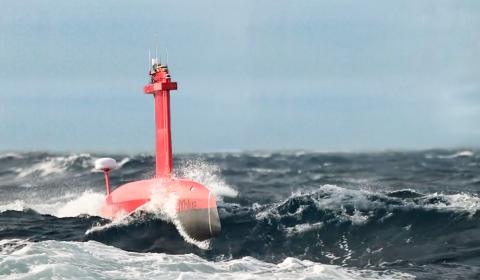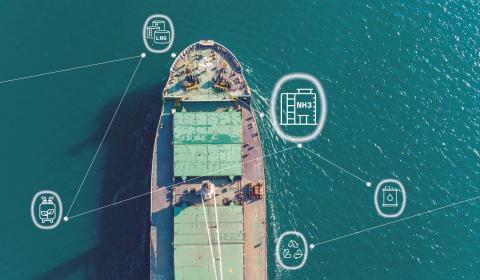
Supporting unmanned surface vessels
Smart vessel operations have enormous potential to boost productivity, predictability, and efficiency within the maritime industry. Major hydrographic institutes and energy companies worldwide have already begun using USVs to carry out hydrographic and geophysical surveys, subsea positioning operations, and water column analysis.
While the novel marine drone sector continues to grow at a rapid pace, global acceptance requires demonstrating that USVs are safe to deploy and operate. This is where Bureau Veritas plays an ever more significant role. “At BV, we are committed to supporting innovation with our robust set of standards to enable these new technologies to reach the market and ensure that they are safely implemented,” says Laurent Leblanc, SVP Technical & Operations at Bureau Veritas Marine & Offshore.
Blazing a path in maritime autonomy
French company iXblue, a leading global provider of advanced autonomous marine technologies designed its DriX USV with speed and seakeeping in mind. DriX is an 8 meter-long USV equipped with radar, LiDAR, cameras, and artificial intelligence that provide it with the advanced perception and adaptation capabilities needed to complete its missions safely and autonomously. Its wide range of applications includes seabed mapping, energy pipeline route inspection, seabed and habitat classification, and military bathymetry.
A certification first
DriX is the first USV to obtain an AiP and certification by BV. With this achievement, it can offer operators greater risk analysis and mission planning support as they continue to deploy marine drones.
BV’s NI641 “Guidelines for Autonomous Shipping” were used as a framework for an analysis of DriX’s architecture and critical functions. To support the AiP, BV Solutions Marine & Offshore completed a Hazard Identification (HAZID) study. The HAZID study assessed potential hazards related to the level of automation and control, area of operation, vessel type, and design. Additionally, a Failure Mode Effects and Criticality Analysis (FMECA) was performed to analyze critical component failure risk and enhance automation system reliability.
“This certification is a major achievement not only for DriX, but for the whole maritime industry, supporting its 4.0 transition,” - Stéphane Vannuffelen, Marine Autonomy Technical Director for iXblue.










